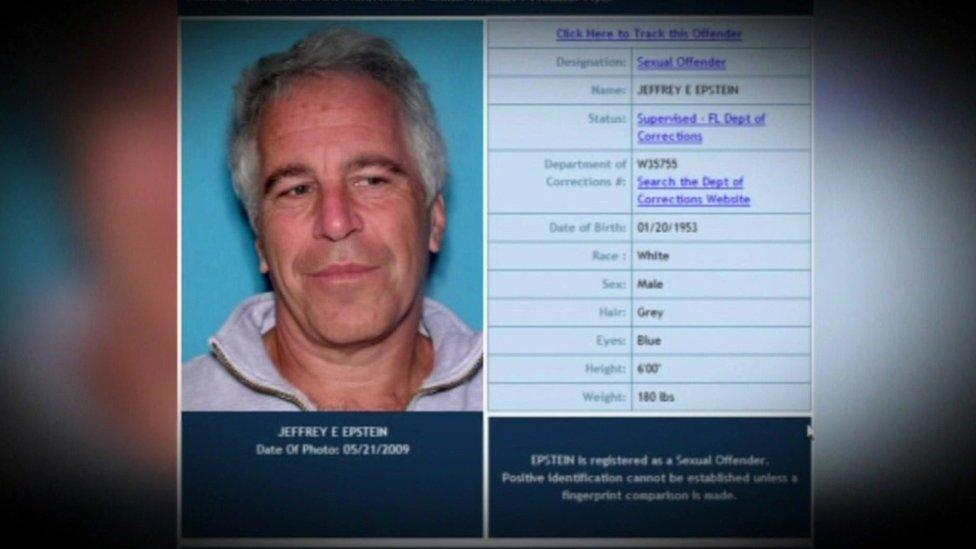Jeffrey Epstein jail 'a gulag' in lower Manhattan
- Published
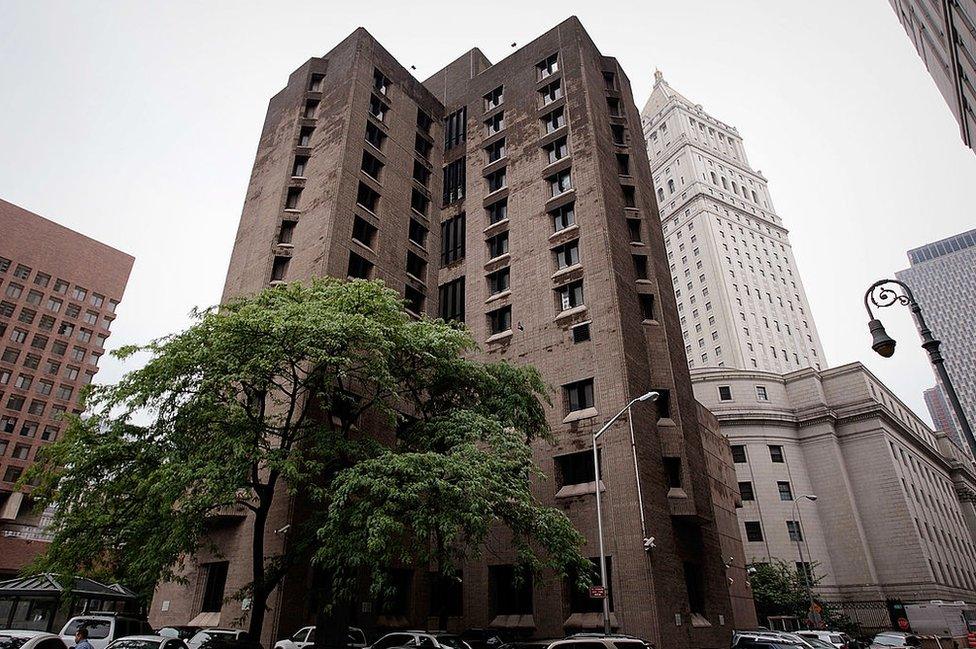
Questions are being asked how Jeffrey Epstein died in custody in New York while being held on sex trafficking charges. So what is the detention facility like where he spent his final days?
Built in 1975, the 12-story Metropolitan Correctional Center in lower Manhattan - where the financier died in a suspected suicide on Friday night - holds around 800 people awaiting trial or sentencing at the federal court house just a few blocks away.
The brick building has detained such high-profile criminals as Mexican drug kingpin El Chapo, Gambino mafia crime boss John Gotti and World Trade Center bomber Ramzi Yousef.
Like other federal prisons, the Metropolitan Correctional Center (MCC) suffers from shortages of staff and resources, prisoner overcrowding and is plagued by violence and poor sanitary conditions.

The conditions
The jail was built to accommodate 474 inmates, but held 763 male prisoners at the time of Epstein's death, according to a statement from the Federal Bureau of Prisons.
Prisoners have described seeing large rats in their cells, air conditioner units so noisy it is impossible to sleep, and absence of any natural light or sanitary water.
As he was sent down for the rest of his life, Mexican drug cartel leader Joaquín "El Chapo" Guzmán took the opportunity to call the place "torture".
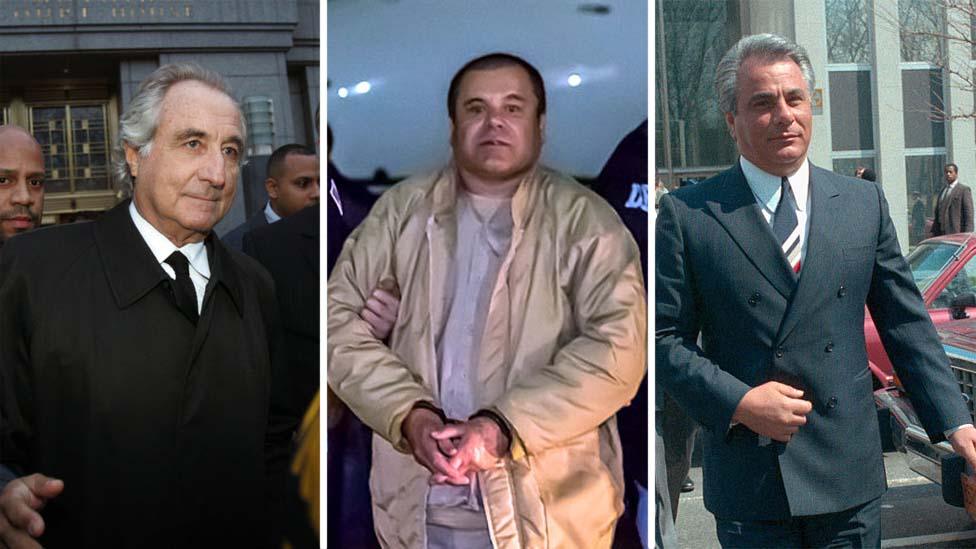
From left: Bernie Madoff, El Chapo and John Gotti have all spent time in the MCC
"Since the government will send me to a jail where my name will not ever be heard again, I take this opportunity to say there was no justice here," he said at his sentencing in July.
"It has been psychological and mental torture 24 hours a day."
Brooklyn College professor Jeanne Theoharis, who has written extensively about MCC, told the Gothamist website in June, external that the jail resembles conditions found in countries such as "Iran or Russia".
Calling the place a "gulag", she described conditions as "filthy, freezing, no natural light, isolation so extreme that you're punished for speaking through the walls, absurd rules like prisoners not getting to see the newspapers unless they're 30 days old, secrecy so deep that people are force-fed".
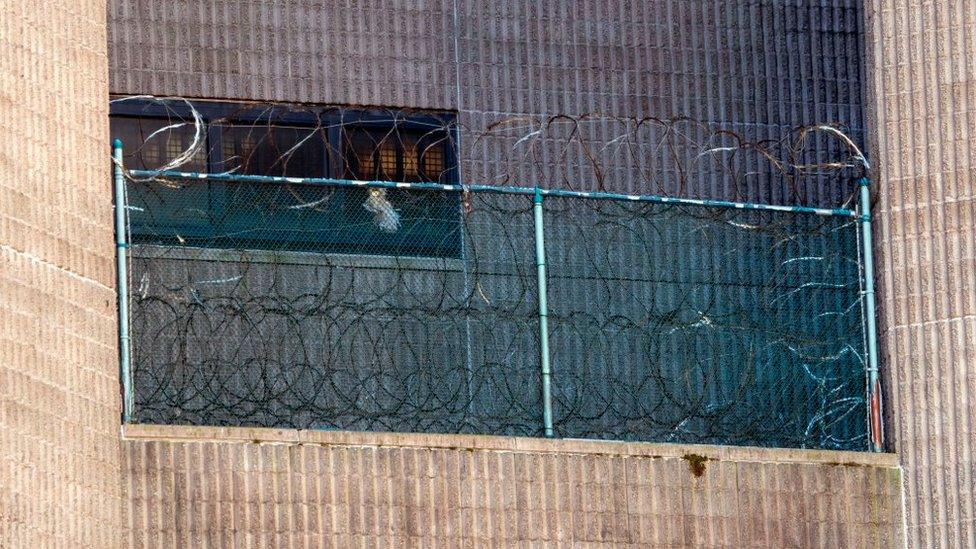
Lawyer Andrew Laufer, who is suing the US government after his client was beaten to death in MCC in 2015, says the Riker's Island prison, which is run by the city, is much more violent than MCC.
He says it's too early to know whether Epstein's wealth may have played a role in his death, amid speculation in the US that he could have bribed guards to be left alone.
He notes that other ultra-rich white collar criminals from Wall Street, only blocks away, are frequent guests of MCC, including Bernie Madoff who was arrested in 2008 for running a multi-million dollar Ponzi scheme.
Mr Laufer says that more important than a client's profile or means is the crime itself and the publicity it receives in the media. Sex criminals like Epstein, he says, are more likely to face issues from other inmates, making it unusual that Epstein was not being more closely watched.

The staffing
A representative for workers at the jail told CBS News in New York that the Epstein death is not surprising. Staffing, the representative says, is "completely inadequate", with many workers putting in more than 60 hours per week leaving them "overwhelmed" and "not alert".
According to the Associated Press (AP), the jail is so under-staffed that correctional officers are being offered a $10,000 bonus to transfer there from other facilities.
Guards sometimes work 16 hours a day, according to the AP, external. A person familiar with the Epstein case told the news agency that a guard overseeing Epstein was working a fifth straight day of overtime - and another was working mandatory overtime - on the day the wealthy financier's body was found.
Staff shortages were worsened after a government shutdown triggered by a budget stand-off between the White House and Democrats over President Donald Trump's insistence on funding for a southern border wall.
US Attorney General William Barr :'Co-conspirators should not rest easy'
In January, during the shutdown, inmates staged a hunger strike over claims they were being denied family visitation rights.
The Bureau of Prisons is already under scrutiny for the death of Boston gangster James Whitey Bulger, who was fatally beaten by another inmate shortly after arriving at a West Virginia lock-up last October.
In February 2018, a British court ruled against extraditing accused hacker Lauri Love - who is diagnosed with Aspergers syndrome and would have probably been held in the MCC - on the grounds that he would present a high-risk of suicide if he was sent there.

Where Epstein stayed
According to the New York Times, Epstein had recently been moved from suicide watch to the Special Housing Unit where he was meant to be on 24-hour monitoring and given daily psychiatric evaluations.
He was ordered there after he was found on the floor of his cell two weeks earlier with neck injuries, in an apparent attempted suicide.
According to the paper, two guards were meant to check on him every 30 minutes, but those procedures were not followed on the night of his death.
He was also meant to be housed with one other inmate, but his cellmate had reportedly been transferred and no replacement had yet arrived.
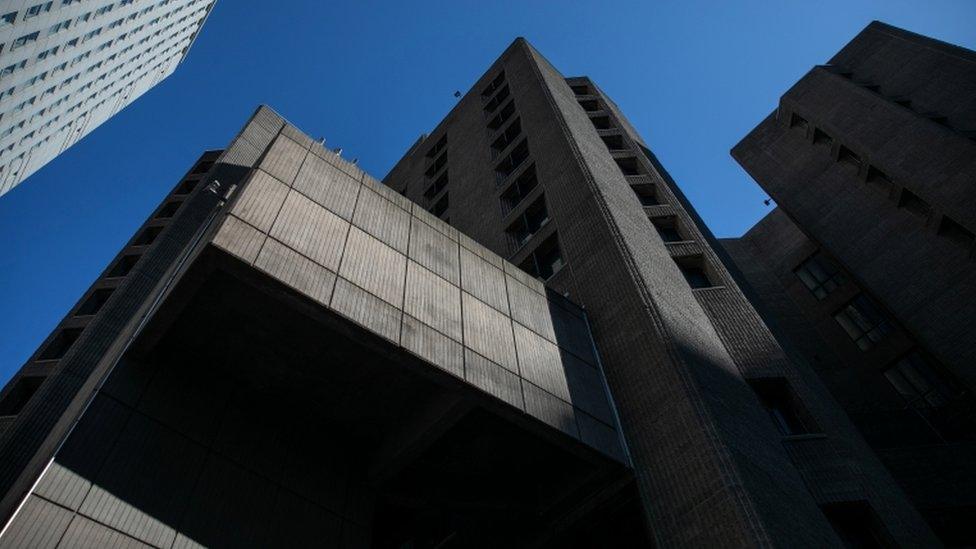
The jail features a recreation yard on the roof
Mr Laufer, the lawyer, says CCTV captures what goes on in the Special Housing Unit, as well as for those prisoners being kept on suicide watch.
He says it's too early to know what contributed to Epstein's death, until an FBI investigation is complete, but either way the prison is facing a "grossly negligent situation".
Investigative reporter Aviva Stahl, who spent a year researching the conditions at MCC, found that the facility shared a single psychiatrist with the other federal prison in New York, the Metropolitan Detention Center in Brooklyn, and only had a handful of psychologists on staff.
The two facilities had only one psychiatrist to oversee the more than 500 prisoners with diagnosed serious mental illnesses, she says, in addition to any prisoners that have been temporarily placed on suicide watch.
"When you're on suicide watch and a psychologist comes to speak with you, it's not as though you're in a private room having a conversation. It's like through a slot in the door," she tells BBC News.
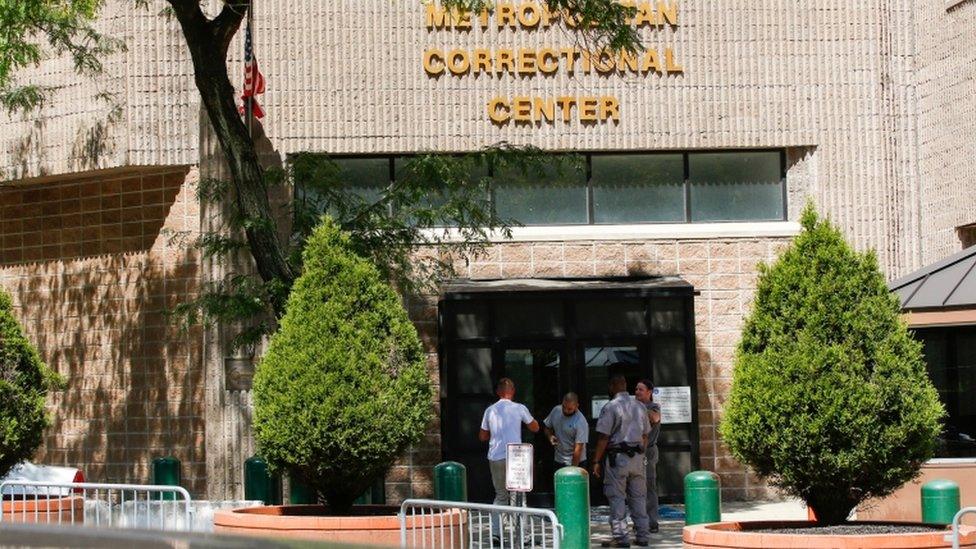
Experts on prison safety say they are puzzled as to why Epstein, who had attempted to take his own life earlier, was not kept under closer watch.
Cameron Lindsey, a former warden at the federal jail in Brooklyn, told the Times that the psychological evaluation can only reveal so much about a prisoner's state of mind.
He said that the steady release of embarrassing and incriminating evidence against Epstein could have made him wish to kill himself, and that other prisoners would consider him a target due to his fame and the nature of his alleged crimes.
"A psychologist is going to think one way, but a warden needs to think a different way," said Mr Lindsey. "You have to take the conservative, safe route and keep an individual like this on suicide watch."
- Published5 February 2018
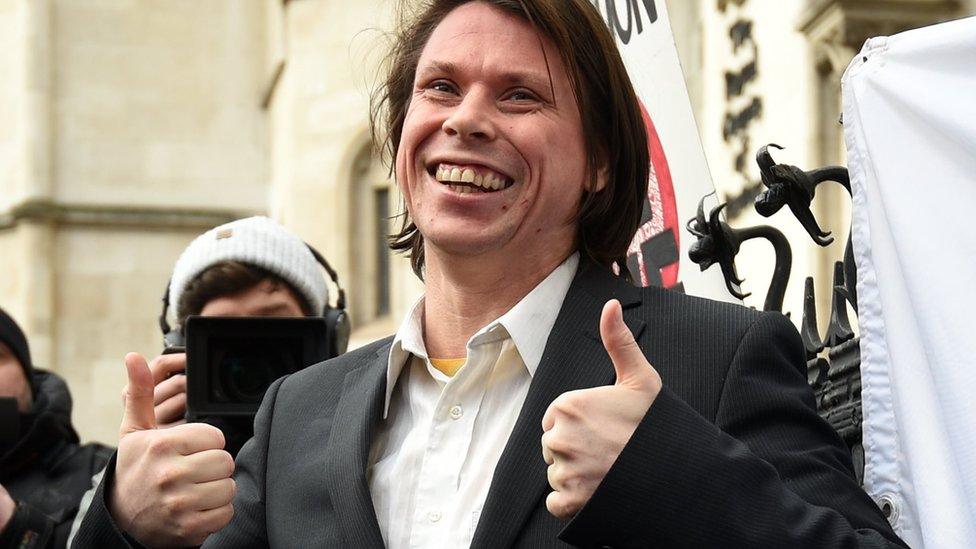
- Published6 May 2019
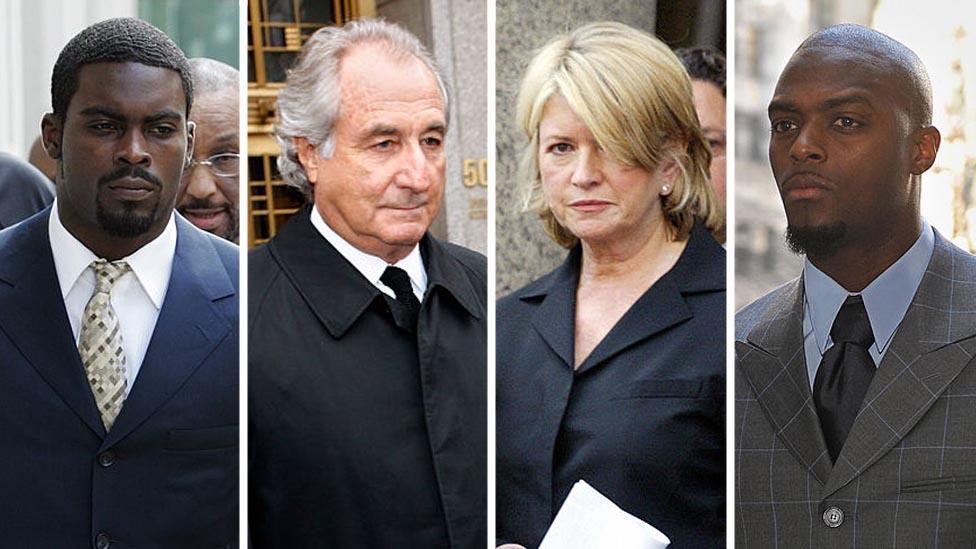
- Published24 November 2021
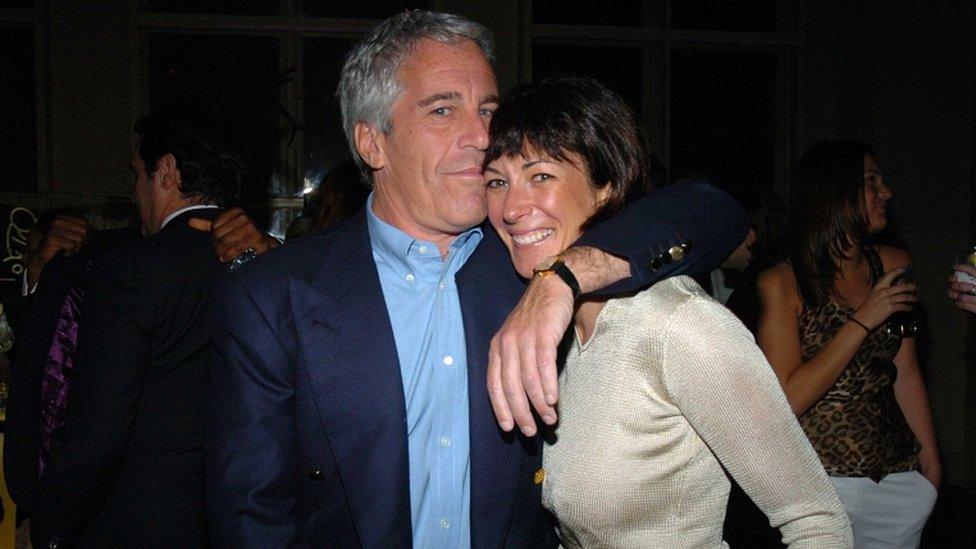
- Published11 August 2019
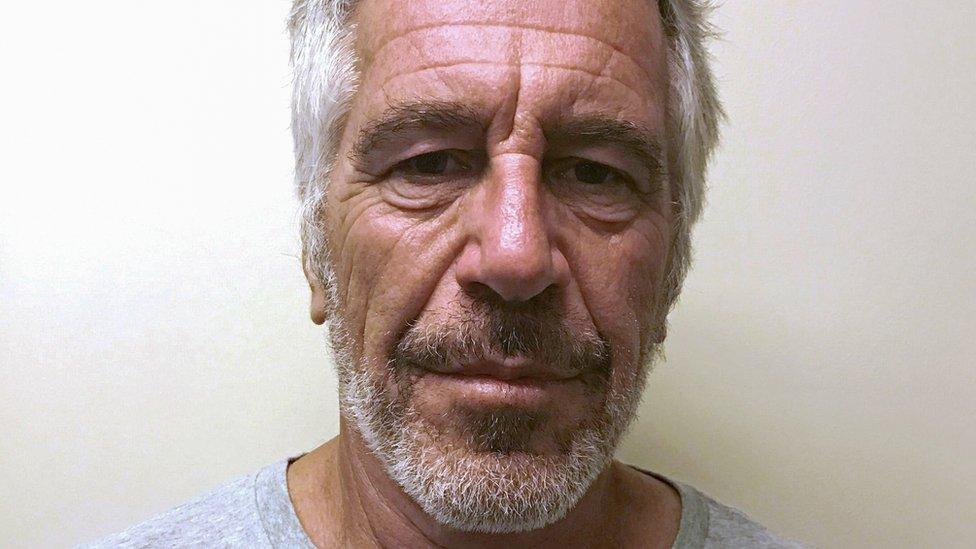
- Published12 August 2019
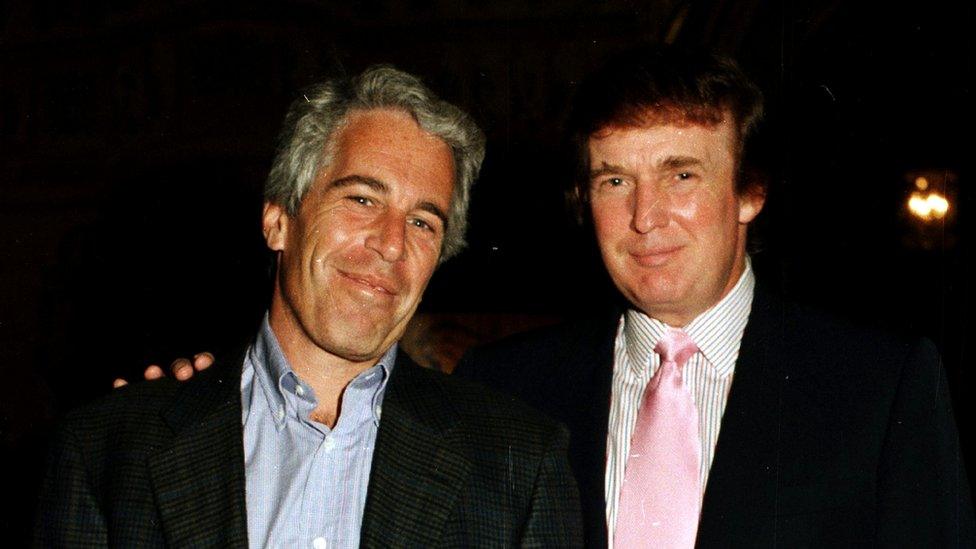
- Published10 August 2019

- Published3 January 2024
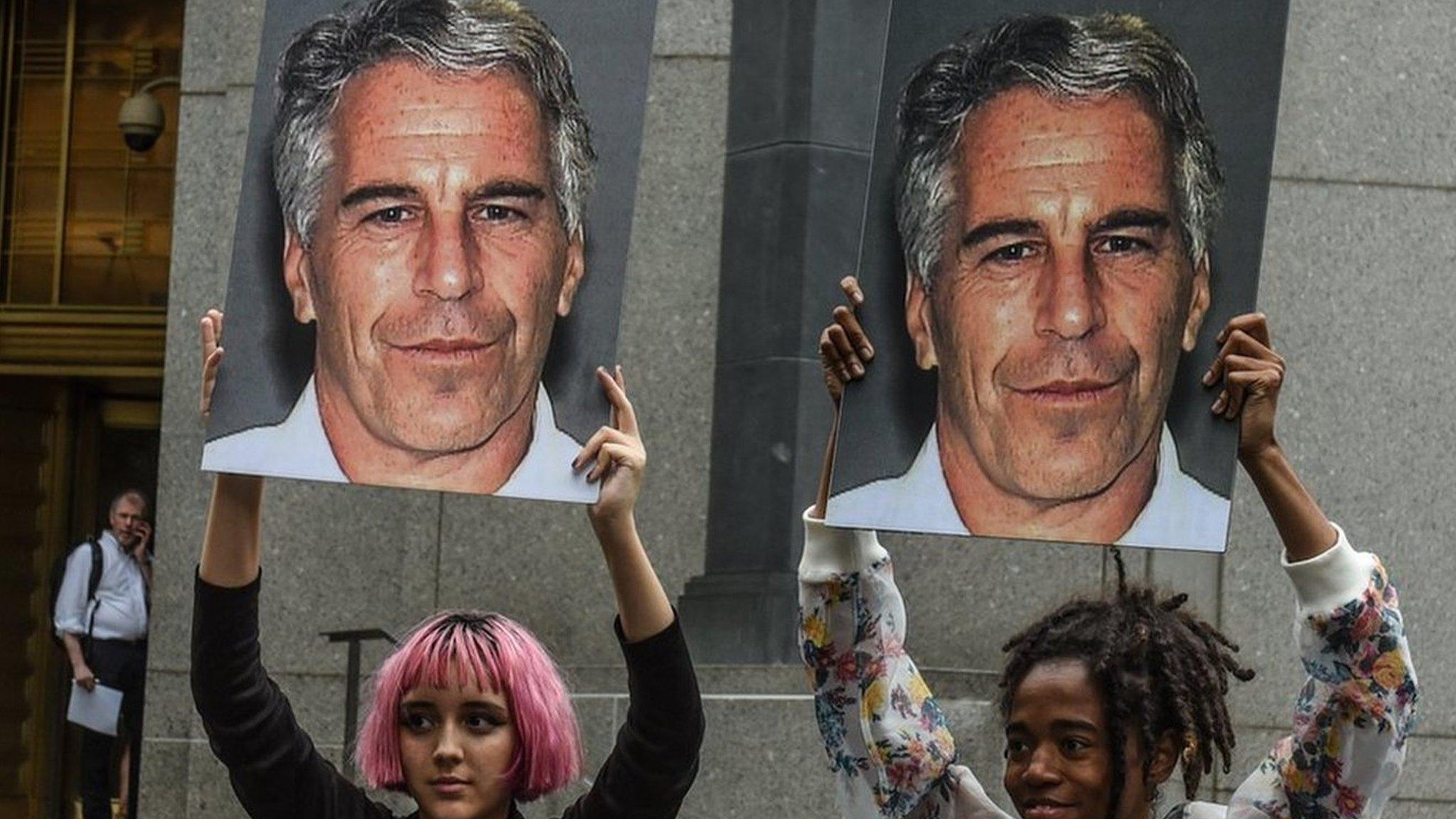
- Published9 July 2019
